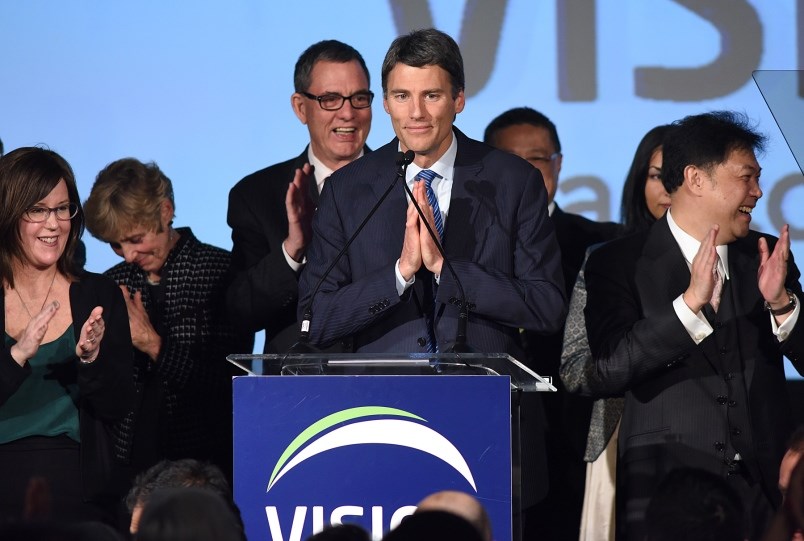Thinking of running for mayor this year?
I’ve heard it requires working long hours, a thick skin and a revolutionary plan to make Vancouver more affordable.
But it will all be worth it because your good work will be rewarded with some decent compensation: more than $160,000 per year.
You’ll also go on trips to far-away places, probably meet some world leaders and take a lot of questions from some guy whose name rhymes with Hike Mowell.
However, unlike previous election years, you and your party won’t be able to spend a Trump Tower-sized amount of money to win the right to make that $160K per year.
That’s because new restrictive campaign finance rules that us media types continue to write about not only ban union and corporate donations, but set expense limits for candidates.
Last week, Elections BC released some numbers.
For Vancouver mayoral candidates, the maximum is $210,174.60.
That’s still a lot of do re mi, but less than what a candidate for school trustee ($109,430.64) and council and park board ($107,793.12) can spend leading up to the Oct. 20 election. The calculations are based on a government formula that includes a municipality’s population.
Third-party advertisers also have limits. It’s $10,508.73 for mayoral, council and park board candidates, and $5,471.53 for school trustee candidates. The cumulative advertising expense limit is $150,000 and applies to all municipal candidates and parties.
All this info is available on the Elections BC website, which breaks down expense limits municipality by municipality. The limits, as you might expect, vary. The bigger the municipality, the more a candidate can spend.
If you’re running for mayor in Abbotsford, the limit is $86,556.10. In Alert Bay, it’s $10,000. In Armstrong, it’s $5,000. In Derek Corrigan land, also known as Burnaby, the limit is $139,909.80. In Surrey, it’s $195,234.90.
All these sentences about money sets up a semi-perfect segue into Vision Vancouver Coun. Andrea Reimer’s relentless push to have mayor and council disclose to the public where they earn their non-council money.
For some on council, being a councillor is a full-time job. For others such as Vision Vancouver Coun. Kerry Jang, who is a professor of psychiatry at the University of B.C. and has done consultant work for the provincial government, and NPA Coun. Hector Bremner, who is vice-president of the Pace Group and works on behalf of various businesses in Metro Vancouver, it is not.
And because it is not, their work outside of the council chamber may or may not put them in a conflict when a rezoning or topic related to a client comes up at city hall—as happened last week when at the end of debate on liquor policy, Bremner suddenly recused himself from discussion over concerns related to his public relations work.
Reimer took to Twitter in reaction to the move: “Council: at the end of debate on liquor policy, and a councillor has just declared he has a conflict on two items after participating in all of the discussion and debate. Oy vey!”
As regular readers will know, I’ve written about this issue before when Reimer tried a couple of times to get some action on her motion. I won’t go around the block again with all the details except to say that Reimer wants the province’s Financial Disclosure Act to be amended.
The intent of the Act is to “identify what areas of influence and possible financial benefit an elected official, nominee or designated employee might have by virtue of their office, and to ensure the public has reasonable access to the information."
But as Reimer wrote in this iteration of her motion, the Act “does not require disclosure of potential conflicts for municipally elected officials where the conflicts may be obscured as a result of them being employed as lobbyists or government and public relation consultants on behalf of other private interests.”
The motion continued: “Therefore, be it resolved that the Financial Disclosure Act be amended to ensure that all potential conflicts and financial interests of municipally elected officials are disclosed per the stated intent of the Act.”
Interestingly, before Reimer introduced her motion, the NPA councillors again—for a third time, I believe on this issue—recused themselves from the discussion. The motion passed without them in the room.
It’s now expected to go before the Union of B.C. Municipalities for review.
@Howellings



